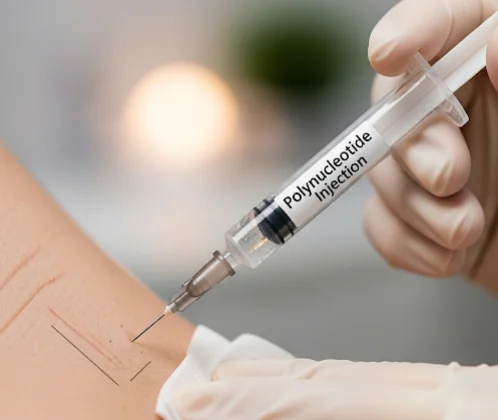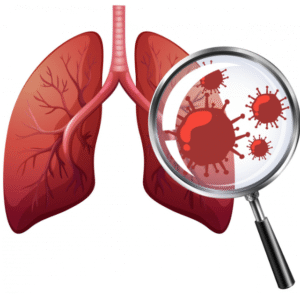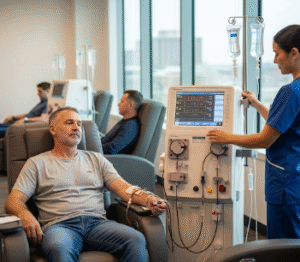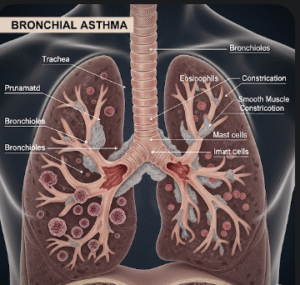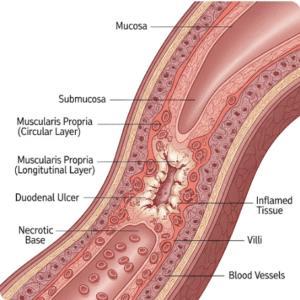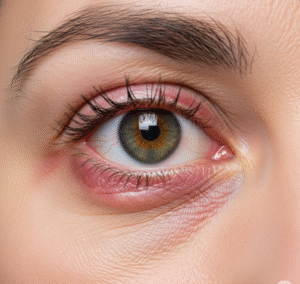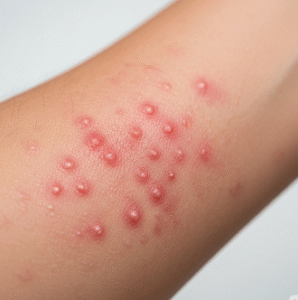🟢 What it is
Polynucleotide (PN) Injection in Korea is a regenerative skin treatment that uses purified DNA fragments derived from salmon or trout. These molecules are biocompatible and safe for humans, and they act at a cellular level to repair, rejuvenate, and regenerate the skin.
When injected into the dermis, PN molecules:
- Stimulate fibroblasts to produce collagen and elastin.
- Improve skin elasticity and thickness.
- Repair damaged tissue (from UV, aging, or acne scars).
- Strengthen the skin barrier and reduce inflammation.
PN injections form the scientific foundation of many Rejuran products (Rejuran Healer, Rejuran i, Rejuran S, Rejuran HB), which are among the most popular skin boosters in Korea.
🟢 Why it’s Done
Patients in Korea choose PN injections for long-term skin health and repair:
➡️ Anti-aging correction: Improves wrinkles, sagging, and thinning skin.
➡️ Barrier strengthening: Restores sensitive or compromised skin.
➡️ Skin repair: Rejuvenates UV-damaged, stressed, or acne-scarred skin.
➡️ Elasticity boost: Improves firmness and reduces laxity.
➡️ Brightening & radiance: Reduces dullness, giving a natural glow.
➡️ Preventive care: Keeps younger skin resilient and healthy.
In Korean dermatology, PN injections are regarded as a “skin healer” treatment—focusing on regeneration rather than surface-level enhancement.
🟢 Alternatives
Polynucleotide injections are powerful, but other regenerative treatments may be considered:
🔹 Hyaluronic Acid (HA) Skin Boosters: Hydration and glow, but not regenerative.
🔹 Profhilo: HA-based bioremodeling for hydration + elasticity.
🔹 Exosome Skin Boosters: Cellular repair, anti-inflammatory, and pigmentation control.
🔹 PRP (Platelet-Rich Plasma): Uses patient’s plasma for natural repair, but results vary.
🔹 Collagen-stimulating fillers (Sculptra, Radiesse, Ellansé): For deeper volume + collagen stimulation.
In Korea, PN is often combined with HA boosters or exosomes for a multi-layered effect.
🟢 Preparation
Preparation is straightforward but important:
➡️ Consultation: Doctor evaluates skin thickness, hydration, and concerns (aging, scars, sensitivity).
➡️ Medical history: Patients disclose allergies, autoimmune issues, or prior boosters.
➡️ Avoid blood thinners: Stop aspirin, ibuprofen, alcohol, and fish oil for 3–5 days.
➡️ Skin care adjustment: Avoid strong exfoliants, retinoids, or peels before treatment.
➡️ Expectation setting: PN injections work gradually and cumulatively—multiple sessions are usually required.
🟢 How it’s Done
The procedure typically takes 20–30 minutes:
- Cleansing & sterilization of the treatment area.
- Numbing: Topical anesthetic applied for comfort.
- Microinjections:
- PN solution is injected into the dermis in small amounts.
- Injector devices or ultra-fine needles may be used.
- Common treatment areas: full face, under-eyes, neck, décolletage, and hands.
- Soothing care: Cooling masks or LED therapy to calm the skin.
Korean dermatologists often recommend 3–4 sessions spaced 3–4 weeks apart for optimal results.
🟢 Recovery
Recovery is short and manageable:
🔹 Downtime: Minimal—patients return to activities quickly.
🔹 Redness & bumps: Tiny papules appear but fade within 24–48 hours.
🔹 Mild swelling: Temporary, usually gone in 1–2 days.
🔹 Results:
- Early improvements in hydration and smoothness within weeks.
- Collagen stimulation and stronger repair after several sessions.
- Long-term improvement in elasticity and resilience.
✅ Post-care in Korea includes:
- Avoid rubbing or pressing the treated area.
- No saunas, alcohol, or strenuous exercise for 24–48 hours.
- Use sunscreen daily to protect new collagen.
- Hydrating skincare to support repair.
🟢 Complications
PN injections are very safe, but as with all injectables, minor effects can occur:
⚠️ Mild issues:
- Redness, tenderness, or swelling.
- Small bruises at injection points.
⚠️ Rare risks:
- Infection if post-care is neglected.
- Uneven distribution (usually resolves naturally).
- Allergic reaction (extremely rare due to high biocompatibility).
➡️ Korean clinics minimize risks using ultra-fine needles, sterile techniques, and precision injection protocols.
🟢 Treatment Options in Korea
Korea offers several PN-based formulations under the Rejuran line and other brands:
🔹 Rejuran Healer (PN): Classic version for overall skin repair and anti-aging.
🔹 Rejuran i: For delicate under-eye rejuvenation.
🔹 Rejuran S: Stronger formula for acne scar repair.
🔹 Rejuran HB (PN + HA): Hybrid version combining repair + hydration.
🔹 Other PN-based boosters: Available in Korean mesotherapy cocktails.
🟢 Final Thoughts
Polynucleotide Injections in Korea are one of the most trusted regenerative skin boosters, focusing on repair, rejuvenation, and strengthening of the skin from within.
➡️ Best for patients with aging, damaged, or sensitive skin who want natural, long-term improvements.
➡️ Provides subtle but significant results—skin becomes firmer, smoother, and more resilient over time.
➡️ With Korea’s advanced PN formulations and expert multi-step treatment protocols, PN injections are considered a cornerstone of skin regeneration therapy.
In summary: Polynucleotide injections in Korea are a safe, effective, and regenerative treatment that help restore youthful, radiant skin in line with the K-beauty philosophy of natural elegance.

